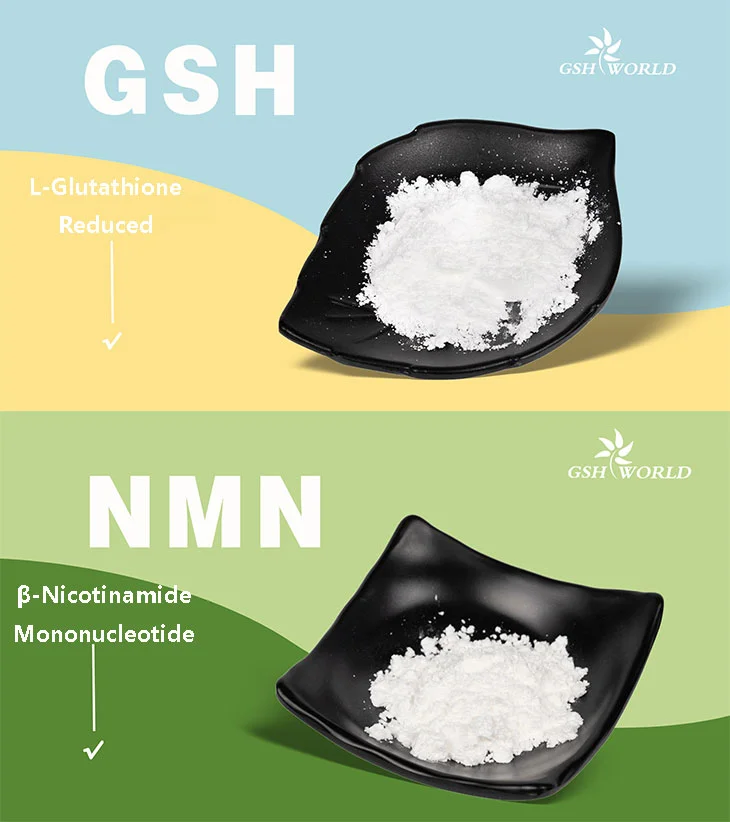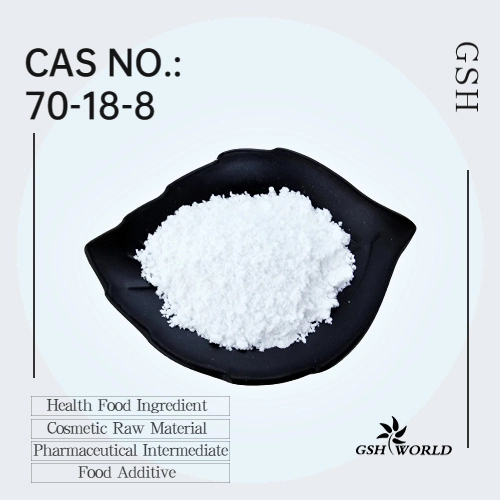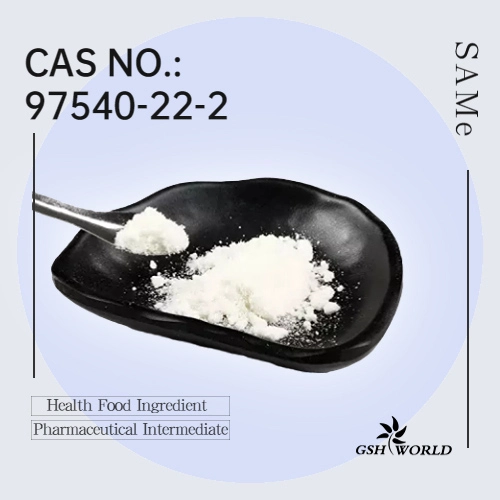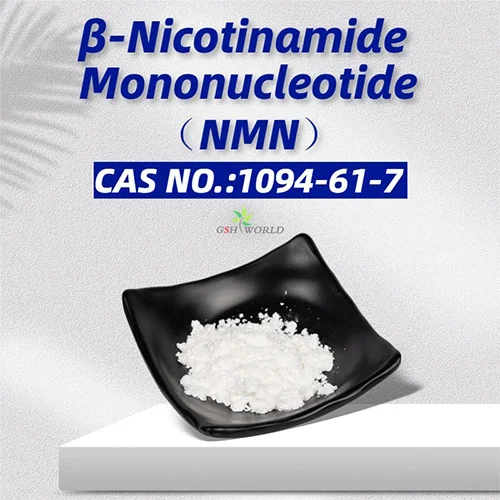NMN in People's Daily, NMN helps you have a strong heart
As an important organ of the human body, the health of the heart is related to the life and death of a person. But with age, the aging or pathological changes of the heart show mitochondrial dysfunction, cardiomyocyte death and decreased regenerative ability, cellular senescence and inflammation, etc. At the same time, it was accompanied by a decrease in NAD+ levels in the heart. NAD+ (nicotinamide adenine dinucleotide), as a coenzyme involved in many important biochemical reactions in our body, plays a vital role in maintaining the normal work of mitochondria.
1. Status
According to the seventh census data, China's population over the age of 60 accounts for 18.7%, reaching 264 million people. This number is expected to reach 487 million in 2050.
There are more and more elderly people over 60 years old, how to "age healthy" has become a topic of concern to many people, and the number one enemy is cardiovascular disease. According to the "China Cardiovascular Health and Disease Report 2019", the number of patients with cardiovascular diseases, including coronary heart disease, heart failure, stroke, and hypertension, has reached 330 million.
These health problems break out intensively in old age, and although there are reasons such as diet and lifestyle, fundamentally speaking, they are closely related to the aging of the body.
But the good news is that although aging is considered to be an inevitable process, the speed of aging varies significantly between different individuals and organs, which means that it is possible for us to intervene in the aging process and make the body and organs " Young adulthood" is longer. So how to keep the heart young?
2. NMN protects heart health in many ways
When NAD+ ages, the level of NAD+, an important protective factor in the body, gradually decreases. NAD+ plays an important role in energy metabolism, myocardial protection, tissue regeneration, and anti-aging.
A study published by the team of Professor Liao Xudong from the Cleveland Clinic in the United States in the SCI journal "Journal of Molecular and Cellular Cardiology" showed that supplementing NAD+ (nicotinamide adenyl dinucleotide, referred to as coenzyme I) can improve the energy metabolism of cardiomyocytes , Improve heart function and prevent heart failure. This study confirmed the key role of NAD+ on heart function from two aspects of "reducing NAD+ level" and "increasing NAD+ level". This provides an idea for the prevention of heart failure.
Professor Liao Xudong's team from the Cleveland Medical Center in the United States published a study in the SCI journal "Molecular and Cellular Cardiology", pointing out that supplementing NAD+ can improve myocardial cell energy metabolism, improve heart function and prevent heart failure.
The study confirmed the key role of NAD+ on heart function from two aspects of "reducing NAD+ level" and "increasing NAD+ level". Professor Liao himself also said: This provides an idea for the prevention of heart failure.
The research team reduced the level of NAD+ through genetic methods, and caused mitochondrial metabolic disorders in cardiomyocytes, and the experimental animals developed symptoms of heart failure; short-term supplementation of NAD+ precursor NMN in experimental animals, this method can reduce cardiomyocyte mortality by 50%, Prolong the survival period of experimental animals by more than 3 times. Increasing NAD+ levels can protect the heart and effectively improve heart function.
By supplementing NAD+ precursor cells and increasing the NAD+ level in the body, it may be able to effectively improve the metabolic level of cardiomyocytes, enhance the contractility of the heart, and effectively reduce the risk of heart failure.
Because high blood pressure can lead to an enlarged heart and clogged arteries, which can lead to a stroke. NAD+ boosters replenish NAD+ levels in the heart, preventing heart damage caused by insufficient blood flow.
1. Protect the heart from ischemia/reperfusion injury
Ischemia/reperfusion injury refers to that when the body tissue is ischemic for a period of time, the tissue does not fully recover after the blood flow is restored, but more serious damage occurs. This situation is very dangerous to the heart and may lead to damage to mitochondria, destruction of myofibril structure, arrhythmia, myocardial stunning and other symptoms.
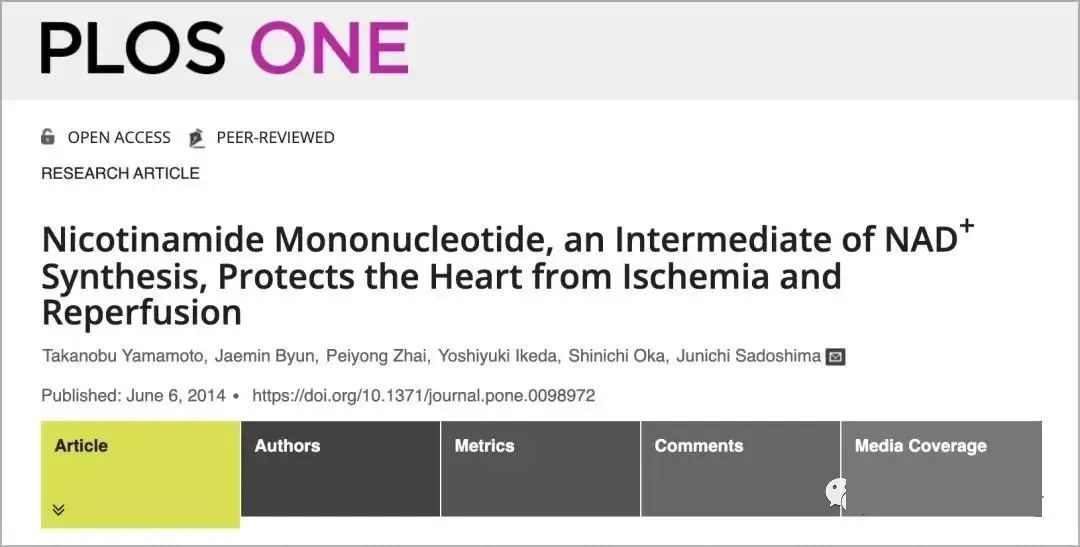
Aging significantly increases the occurrence of ischemia/reperfusion injury, which is positively ameliorated by increased NAD+ levels in the heart.
In 2014, the New Jersey School of Medicine found that intraperitoneal injection of NMN in mice significantly increased the level of NAD+ in the heart and prevented the decrease of NAD+ during ischemia, thereby protecting the heart from ischemia/reperfusion injury.
2. Maintain cardiac mitochondrial homeostasis and prevent heart failure
The reduction of NAD+ and its mediated Sirtuins activity will negatively affect mitochondrial function, and the dysfunction of cardiac mitochondria is the key to the pathogenesis of heart disease.
A 2017 study by Case Western Reserve University School of Medicine showed that a short-term intraperitoneal injection of the NAD+ precursor NMN successfully prevented pressure overload-induced heart failure in mice. This is because NMN can protect the ultrastructure of mitochondria, reduce the level of reactive oxygen species in cells, and prevent the death of heart cells, thereby maintaining the normal survival and function of heart cells.
3. Improve the metabolism and function of the aging heart
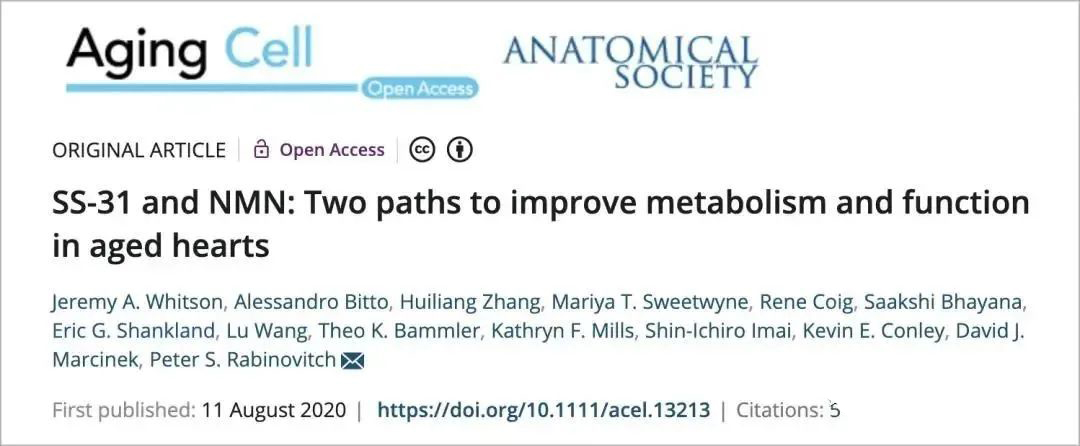
In 2020, researchers at the University of Washington in the US tested two different mitochondria-targeting drugs, SS-31 (a synthetic tetrapeptide) and NMN, and studied their effects on the aging heart. The findings showed that SS-31 partially reversed the age-related decline in diastolic function, while NMN completely reversed the age-related deficit in systolic function. The synergy of the two drugs could better rejuvenate the aging heart.
4. Reduce cardiac fibrosis
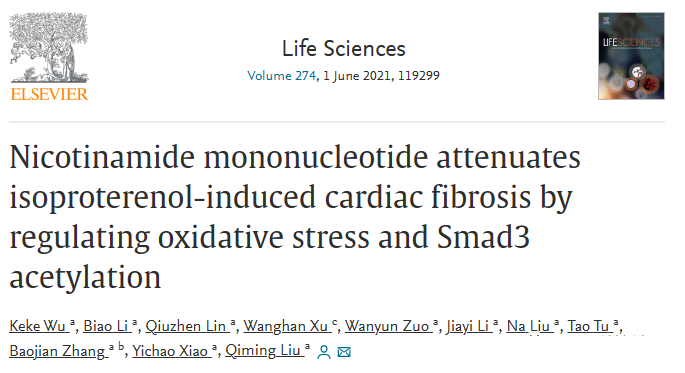
Cardiac fibrosis is caused by various factors such as coronary atherosclerosis, abnormal cardiometabolic, and myocardial ischemia. This process causes the heart to become abnormally stiff, which can eventually lead to heart failure. When cardiac fibrosis occurs, the fibers in the heart muscle continually proliferate and form scar tissue in order to repair the damaged tissue, which causes the heart muscle to lose its elasticity and suppleness, causing the heart to become stiff and lose its ability to contract.
In 2021, a study by West China Hospital of Sichuan University found that intraperitoneal injection of NMN to mice with cardiac fibrosis can effectively increase NAD+ and SIRT1 (an NAD+-dependent deacetylase), thereby reducing cardiac fibrosis in vivo and fibrogenesis in vitro Cell activation.
I believe that with the continuous update of scientific research results, I believe that NMN will eventually make great contributions to the road to human health and longevity!
PREVIOUS: L-Carnosine Powder: A Comprehensive Guide
NEXT: Why is it recommended that middle-aged and elderly men and women over 50 years old should eat NMN
by GSHWORLD
GSHWORLD is China Biological API Manufacturer. China NMN Supplements powder suppliers & best NMN benefits raw material Factory.


